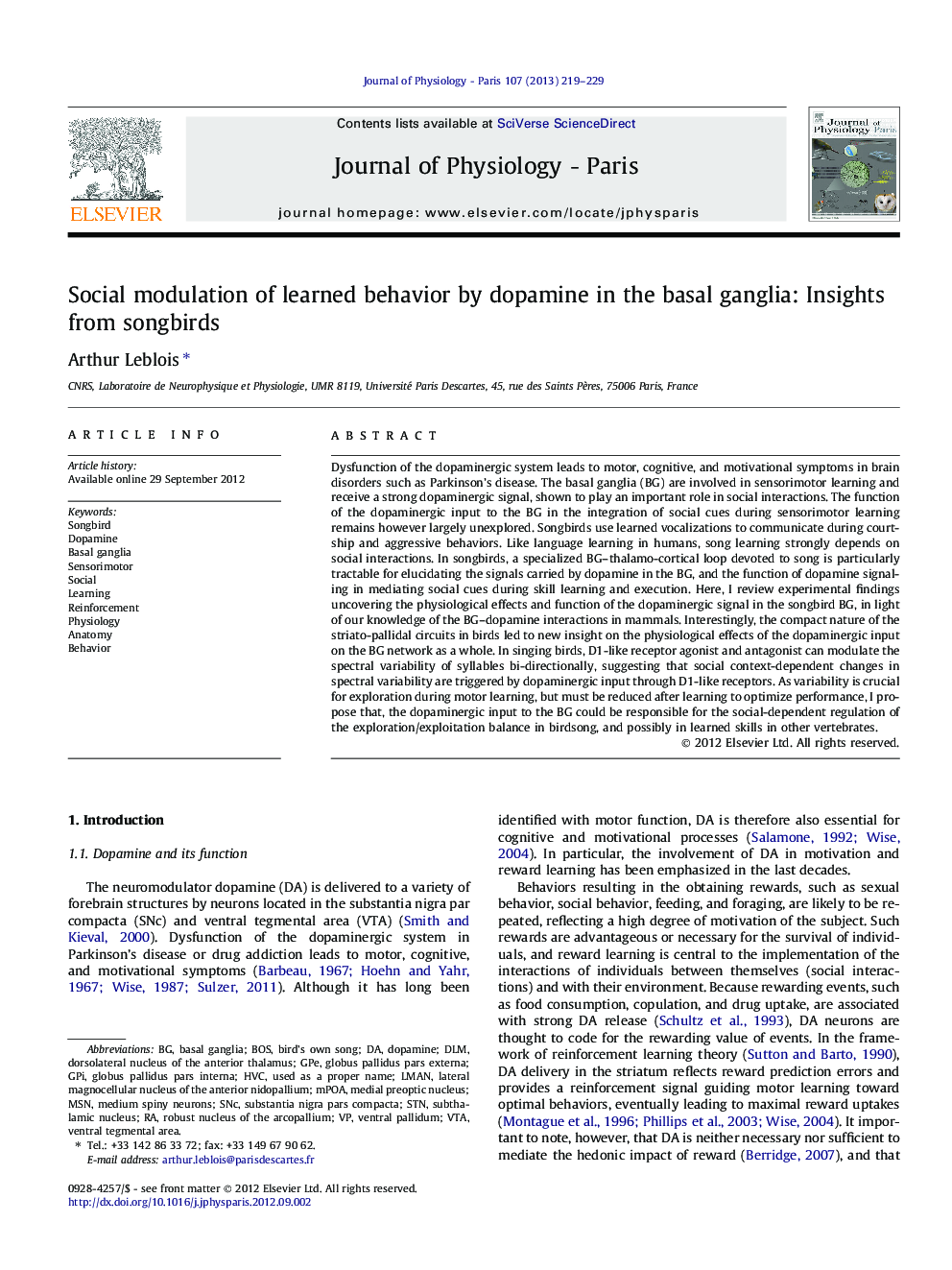| Article ID | Journal | Published Year | Pages | File Type |
|---|---|---|---|---|
| 2842380 | Journal of Physiology-Paris | 2013 | 11 Pages |
Dysfunction of the dopaminergic system leads to motor, cognitive, and motivational symptoms in brain disorders such as Parkinson’s disease. The basal ganglia (BG) are involved in sensorimotor learning and receive a strong dopaminergic signal, shown to play an important role in social interactions. The function of the dopaminergic input to the BG in the integration of social cues during sensorimotor learning remains however largely unexplored. Songbirds use learned vocalizations to communicate during courtship and aggressive behaviors. Like language learning in humans, song learning strongly depends on social interactions. In songbirds, a specialized BG–thalamo-cortical loop devoted to song is particularly tractable for elucidating the signals carried by dopamine in the BG, and the function of dopamine signaling in mediating social cues during skill learning and execution. Here, I review experimental findings uncovering the physiological effects and function of the dopaminergic signal in the songbird BG, in light of our knowledge of the BG–dopamine interactions in mammals. Interestingly, the compact nature of the striato-pallidal circuits in birds led to new insight on the physiological effects of the dopaminergic input on the BG network as a whole. In singing birds, D1-like receptor agonist and antagonist can modulate the spectral variability of syllables bi-directionally, suggesting that social context-dependent changes in spectral variability are triggered by dopaminergic input through D1-like receptors. As variability is crucial for exploration during motor learning, but must be reduced after learning to optimize performance, I propose that, the dopaminergic input to the BG could be responsible for the social-dependent regulation of the exploration/exploitation balance in birdsong, and possibly in learned skills in other vertebrates.
► Songbirds are a good model to study the function of dopamine in the basal ganglia. ► Dopamine modulates information transmission through the song-related basal ganglia. ► Dopaminergic input to the basal ganglia modulates song with social context. ► The tonic dopaminergic input may regulate the exploration–exploitation balance.
